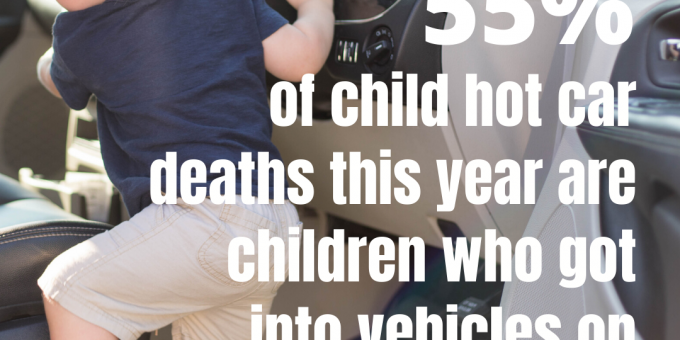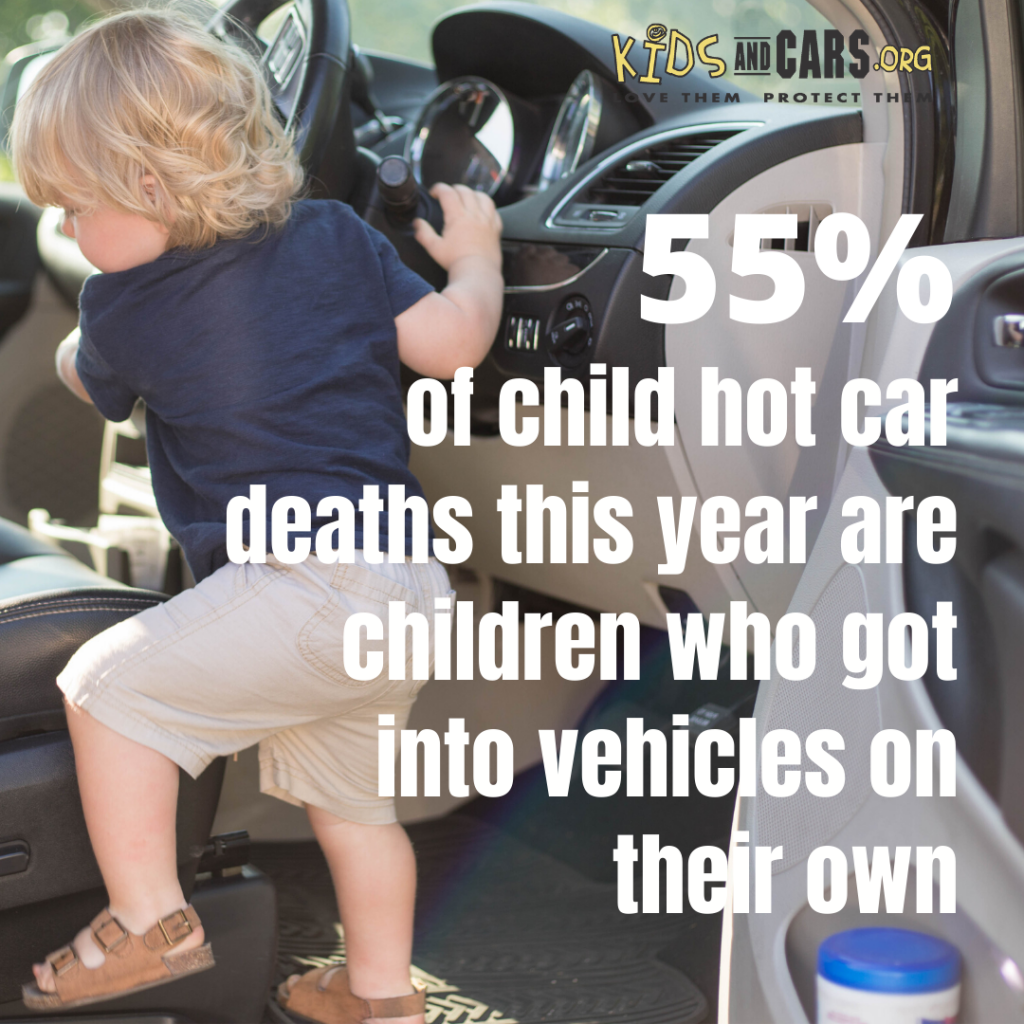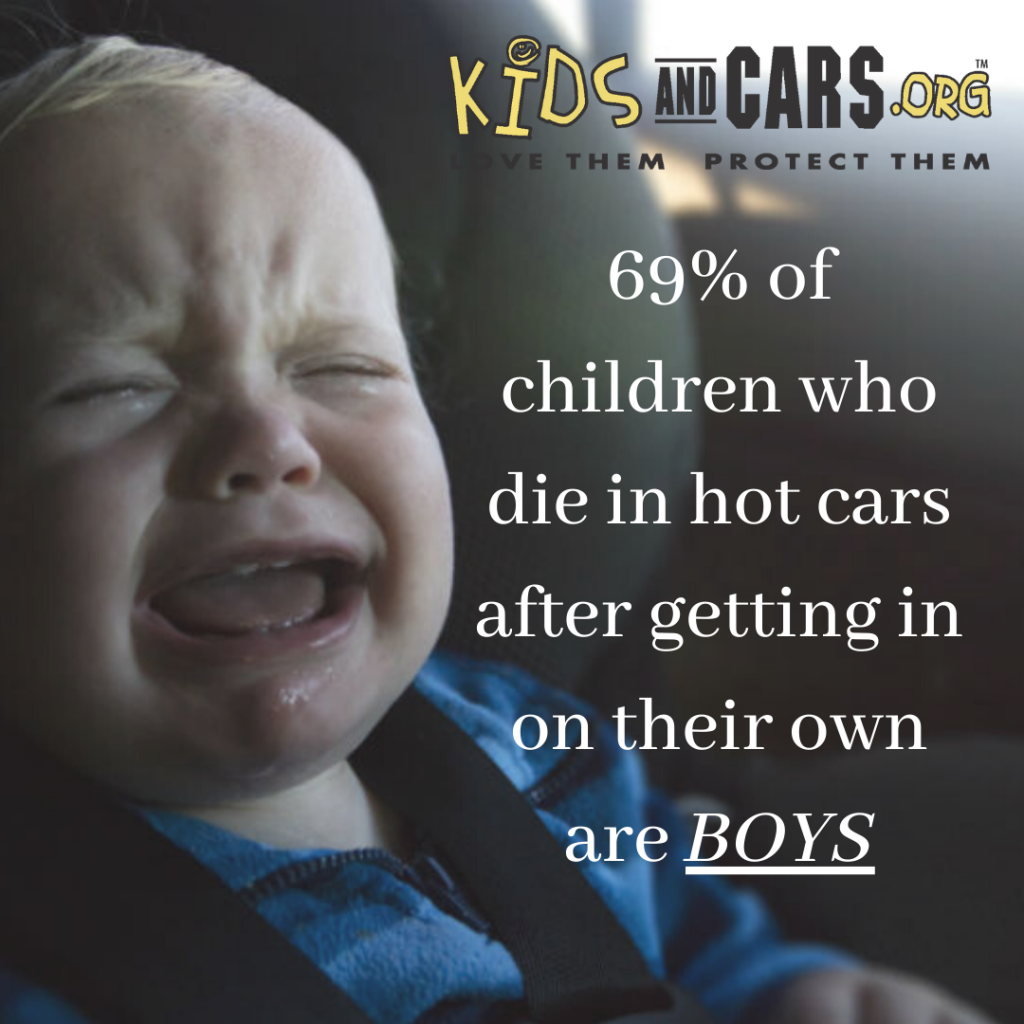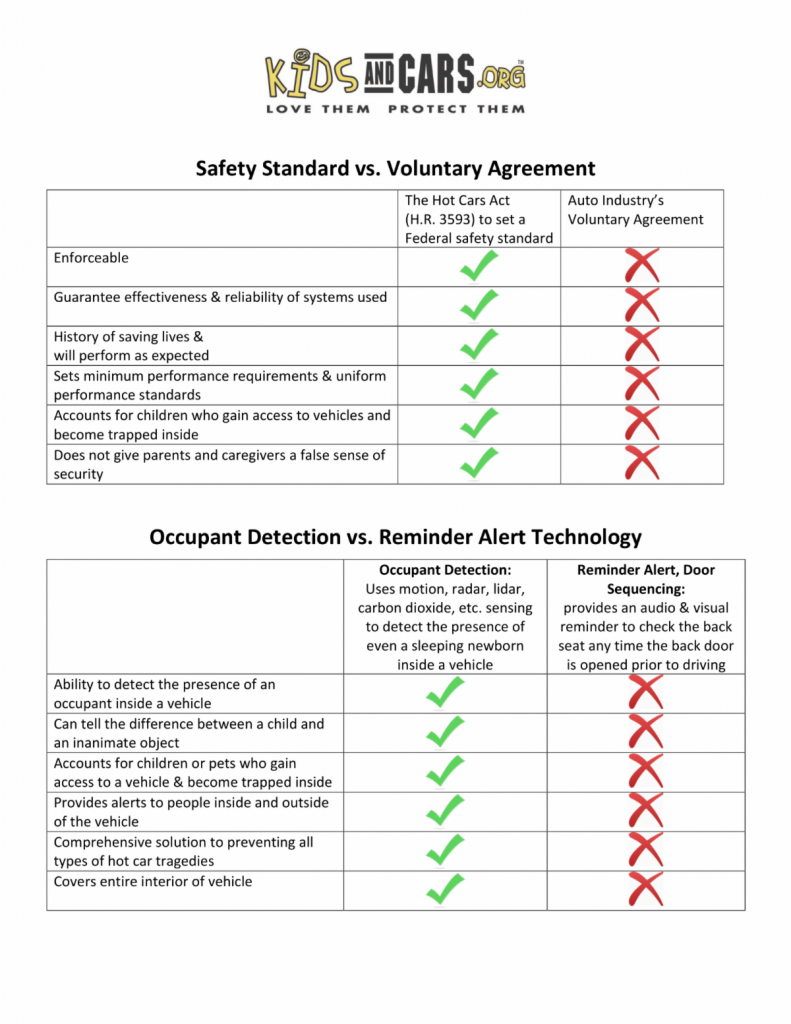
(UNDATED) – On average, 26% of hot car deaths are the result of children getting into vehicles and becoming trapped inside. However, this year 55% of hot car fatalities involve children who got into vehicles on their own.

The most recent tragedy happened on Monday in Booneville, AR when a 3-year-old girl died and her 15-month-old sister was hospitalized after getting into a vehicle outside their mother’s home.
The last two years were the worst years in history for child hot car deaths with at least 107 children that died nationwide.
As parents and caregivers juggle numerous priorities all at the same time during these unprecedented times, supervision can be more difficult than ever. Young children climb into unlocked cars and trunks to play, but they can’t always get out. With fewer parents and caregivers traveling to work, and fewer children attending childcare and preschool, it is imperative that all drivers, even those without children, lock their vehicles so children cannot gain access.
Safety tips to make sure children cannot get into a parked car:
- Keep vehicles locked at all times, especially at home, and even if you don’t have children of your own. Ask neighbors and visitors to do the same.
- Never leave car keys within reach of children.
- Take precautions to ensure toddlers cannot sneak out of the home using childproofing door covers, door alarms, baby gates, etc.
- Teach children never to get into a vehicle without an adult, but if they do become trapped to honk the horn, turn on the hazard lights and stay visible to passersby if they become stuck inside a car.
- If a child is missing, immediately check the inside, floorboards, and trunk of all vehicles in the area very carefully, even if they’re locked.

The Hot Cars Act (H.R. 3593) passed the full House on July 1, 2020, as part of the Moving Forward Act (H.R. 2). This bill would require available, affordable technology to detect the presence of a child inside a vehicle. Safety standards are critical because they are enforceable and ensure the effectiveness of the technology used by automakers. Parents rightfully expect high-quality systems to help back up their memories and keep their children out of harm’s way.
Last year, the auto industry issued a voluntary agreement to add a reminder alert for drivers to check the back seat of vehicles by 2025. However, this type of technology will NOT address fatalities where children got into vehicles on their own and became trapped inside. A voluntary agreement is fraught with problems, most notably the fact that it is not enforceable and does not guarantee the effectiveness of the technology being used.
“It has come to our attention that many people believe that the auto industry’s voluntary agreement is going to solve the problem of children dying in hot cars. Nothing could be further from the truth” states Janette Fennell, president and founder of KidsAndCars.org. “We cannot put the lives of children in the hands of an industry that has a history of not following through with what they say they will do. We need a safety standard requiring technology that can actually detect the presence of a child inside a vehicle no matter how they got inside, like what is required in the Hot Cars Act,” she continued.
KidsAndCars.org is a national nonprofit dedicated to saving the lives of young children and pets in and around vehicles.




